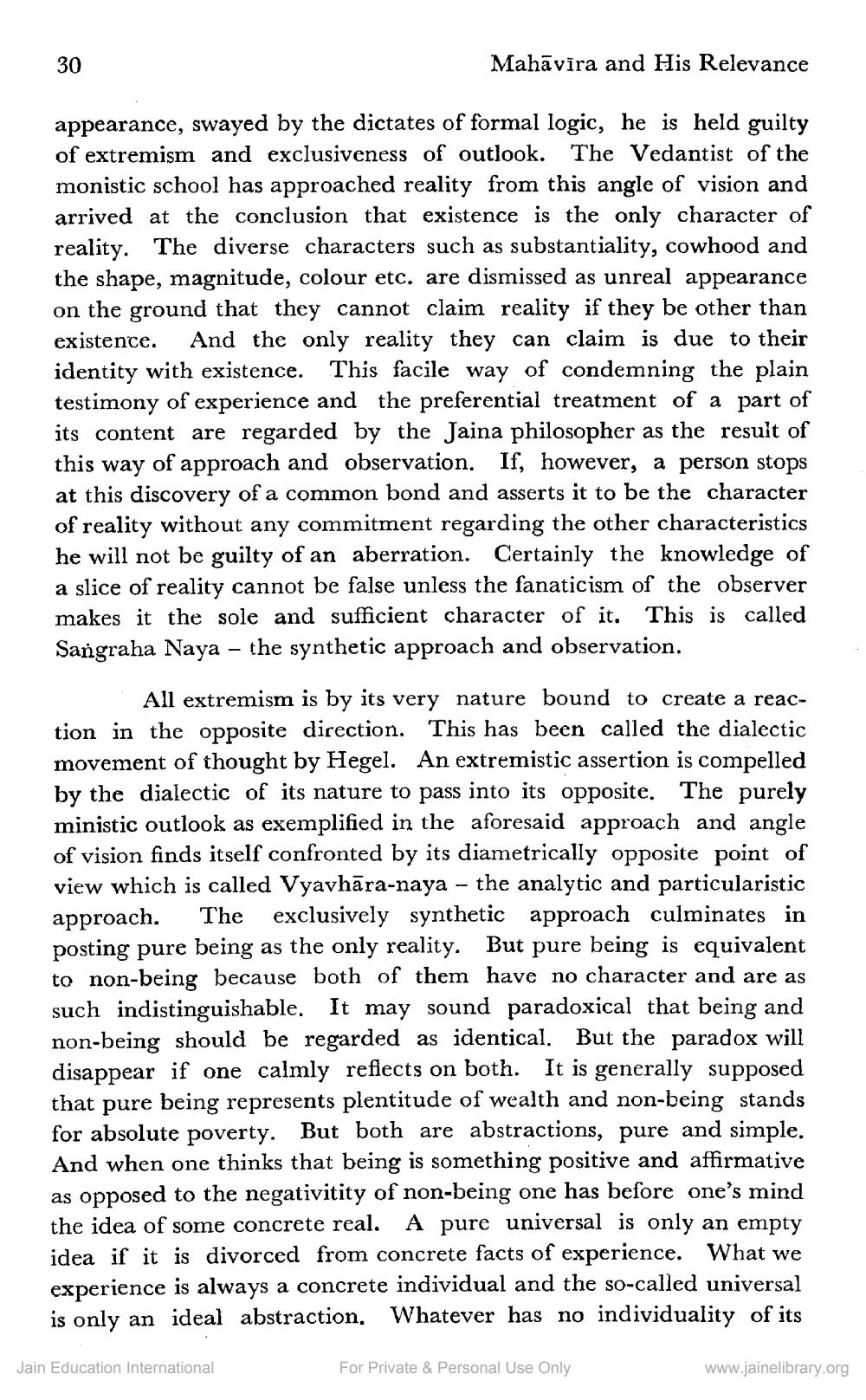________________
30
Mahāvīra and His Relevance
appearance, swayed by the dictates of formal logic, he is held guilty of extremism and exclusiveness of outlook. The Vedantist of the monistic school has approached reality from this angle of vision and arrived at the conclusion that existence is the only character of reality. The diverse characters such as substantiality, cowhood and the shape, magnitude, colour etc. are dismissed as unreal appearance on the ground that they cannot claim reality if they be other than existence. And the only reality they can claim is due to their identity with existence. This facile way of condemning the plain testimony of experience and the preferential treatment of a part of its content are regarded by the Jaina philosopher as the result of this way of approach and observation. If, however, a person stops at this discovery of a common bond and asserts it to be the character of reality without any commitment regarding the other characteristics he will not be guilty of an aberration. Certainly the knowledge of a slice of reality cannot be false unless the fanaticism of the observer makes it the sole and sufficient character of it. This is called Sangraha Naya - the synthetic approach and observation.
All extremism is by its very nature bound to create a reaction in the opposite direction. This has been called the dialectic movement of thought by Hegel. An extremistic assertion is compelled by the dialectic of its nature to pass into its opposite. The purely ministic outlook as exemplified in the aforesaid approach and angle of vision finds itself confronted by its diametrically opposite point of view which is called Vyavhāra-naya - the analytic and particularistic approach. The exclusively synthetic approach culminates in posting pure being as the only reality. But pure being is equivalent to non-being because both of them have no character and are as such indistinguishable. It may sound paradoxical that being and non-being should be regarded as identical. But the paradox will disappear if one calmly reflects on both. It is generally supposed that pure being represents plentitude of wealth and non-being stands for absolute poverty. But both are abstractions, pure and simple. And when one thinks that being is something positive and affirmative as opposed to the negativitity of non-being one has before one's mind the idea of some concrete real. A pure universal is only an empty idea if it is divorced from concrete facts of experience. What we experience is always a concrete individual and the so-called universal is only an ideal abstraction. Whatever has no individuality of its
Jain Education International
For Private & Personal Use Only
www.jainelibrary.org




